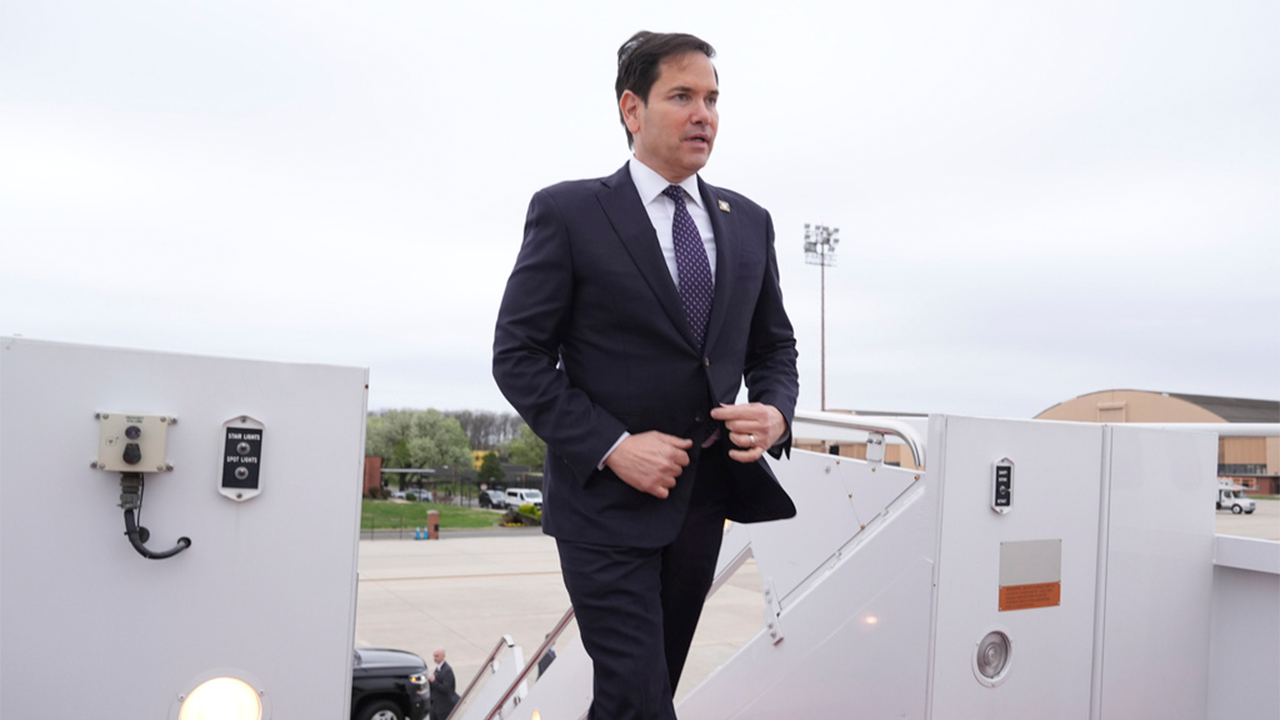Rubio arrives in Brussels for NATO talks amid unease over Trump’s agenda

Secretary of State Marco Rubio and U.S. ambassador to NATO Matthew Whitaker made their way to Brussels on Thursday for crucial talks with European allies. The purpose of these discussions was to provide clarity on the future plans of the United States in Europe, a region where tensions have been escalating due to President Donald Trump’s overtures towards Russian President Vladimir Putin.
The visit of Rubio and Whitaker comes at a time when European allies and Canada are growing increasingly concerned about Trump’s apparent willingness to cozy up to Putin, who views NATO as a threat to Russian interests. Recent statements and insults from the White House directed at NATO allies have only added to the confusion and alarm among European nations.
Compounding the uncertainty are Trump’s recent tariffs, which have targeted both allies and adversaries of the United States. Just a day before Rubio’s arrival, Trump signed an executive order imposing a minimum baseline tariff of 10% on all imports, further complicating the situation for transatlantic relations.
Defense Secretary Pete Hegseth’s warning last month that U.S. security priorities lie elsewhere, particularly in Asia and along the U.S. borders, has left European allies anxious about the potential scale and speed of a military drawdown in Europe.
European governments are now working on “burden-shifting” plans to assume more responsibility and prevent any security vacuums in the event of a U.S. withdrawal from the continent. They are eagerly awaiting insights from Rubio regarding the Trump administration’s intentions and hoping to secure a roadmap that outlines future actions and timelines for synchronization and planning purposes.
Upon his arrival, U.S. ambassador to NATO Matthew Whitaker expressed confidence in NATO’s future under Trump’s leadership, emphasizing the importance of every ally fulfilling their obligations to ensure the alliance’s strength and effectiveness. Whitaker also underscored the U.S. commitment to NATO’s collective security guarantee, while urging European partners to take on a greater role in promoting peace, security, and the reconstruction of Ukraine.
Furthermore, Whitaker highlighted the need for NATO to address emerging threats from China, signaling a shift in focus towards countering challenges beyond the traditional Euro-Atlantic realm.
In conclusion, the discussions between Secretary of State Marco Rubio, U.S. ambassador to NATO Matthew Whitaker, and European allies are critical in navigating the current uncertainties and challenges facing transatlantic relations. By fostering dialogue and cooperation, all parties aim to strengthen NATO’s role as a cornerstone of peace and security while adapting to evolving geopolitical dynamics.
This article is a revised version of the original content, incorporating key points and maintaining the structure and essence of the source material.




